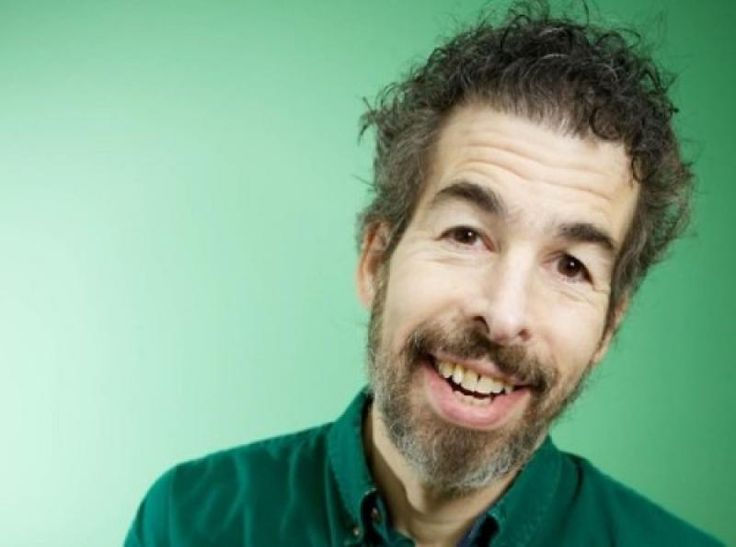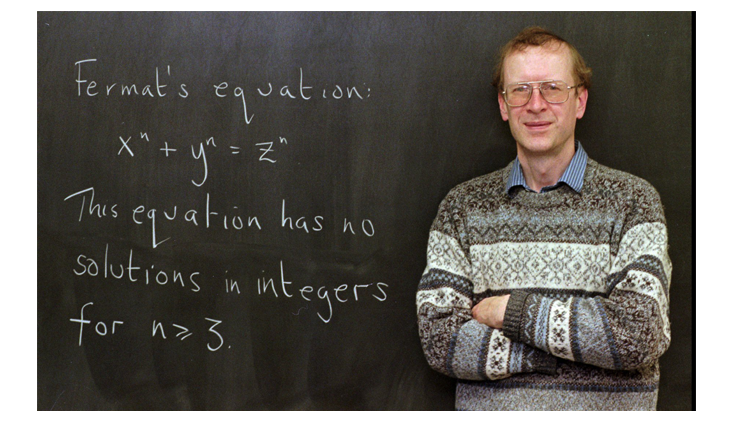10 Smartest People Alive Today
- Ken Ecott
- Apr 21, 2017
- 6 min read
History is peppered with influential geniuses who changed the world. Individuals like Socrates, Leonardo daVinci, Isaac Newton and Albert Einstein all had groundbreaking ideas that have lived on long after their deaths. Following this fine tradition, we take a look at 10 of the smartest people alive today – including brilliantly accomplished academics, former child prodigies, IQ whizzes, and super sharp young intellectuals with their whole lives ahead of them.
10. TERENCE TAO

With an outstanding IQ of 230, Terence Tao, 39, was teaching 5-year-olds how to spell and how to add numbers – he was 2. When he was merely 10, he began participating in International Mathematical Olympiads and won a bronze in 1986, silver in 1987 and gold in 1988, becoming the youngest ever gold medalist in the Mathematical Olympiad. By the time he was 16, he had earned his Bachelor’s and Master’s degree – he got his Ph.D. at 20.
9. CHRISTOPHER HIRATA

Astrophysicist Chris Hirata was born in Michigan in 1982, and at the age of 13 he became the youngest U.S. citizen to receive an International Physics Olympiad gold medal. When he turned 14, Hirata apparently began studying at the California Institute of Technology, and he would go on to earn a bachelor’s degree in physics from the school in 2001. At 16 – with a reported IQ of 225 – he started doing work for NASA, investigating whether it would be feasible for humans to settle on Mars. Then in 2005 he went on to obtain a Ph.D. in physics from Princeton. Hirata is currently a physics and astronomy professor at The Ohio State University. His specialist fields include dark energy, gravitational lensing, the cosmic microwave background, galaxy clustering, and general relativity. “If I were to say Chris Hirata is one in a million, that would understate his intellectual ability,” said a member of staff at his high school in 1997.
8. KIM UNG-YONG

Before The Guinness Book of World Records withdrew its Highest IQ category in 1990, South Korean former child prodigy Kim Ung-Yong made the list with a score of 210. Kim was born in Seoul in 1963, and by the time he turned three, he could already read Korean, Japanese, English and German. When he was just eight years old, Kim moved to America to work at NASA. “At that time, I led my life like a machine. I woke up, solved the daily assigned equation, ate, slept, and so forth,” he has explained. “I was lonely and had no friends.” While he was in the States, Kim allegedly obtained a doctorate degree in physics, although this is unconfirmed. In any case, in 1978 he moved back to South Korea and went on to earn a Ph.D. in civil engineering.
7. CHRISTOPHER LANGAN

Born in San Francisco in 1952, self-educated Christopher Langan is a special kind of genius. By the time he turned four, he’d already taught himself how to read. At high school, according to Langan, he tutored himself in “advanced math, physics, philosophy, Latin and Greek, all that.” What’s more, he allegedly got 100 percent on his SAT test, even though he slept through some of it. Langan attended Montana State University but dropped out. Rather like the titular character in 1997 movie Good Will Hunting, Langan didn’t choose an academic career; instead, he worked as a doorman and developed his Cognitive-Theoretic Model of the Universe during his downtime. In 1999, on TV news, magazine 20/20, neuropsychologist Robert Novelly stated that Langan’s IQ – said to be between 195 and 210 – was the highest he’d ever measured. Langan has been dubbed “the smartest man in America.”
6. RICK ROSNER

U.S. television writer and pseudo-celebrity Richard Rosner is an unusual case. Born in 1960, he has led a somewhat checkered professional life: as well writing for Jimmy Kimmel Live! and other TV shows, Rosner has, he says, been employed as a stripper, doorman, male model and waiter. In 2000 he infamously appeared on Who Wants to Be a Millionaire?, answering a question about the altitude of capital cities incorrectly and reacting by suing the show, albeit unsuccessfully. Rosner placed second in the World Genius Directory’s 2013 Genius of the Year Awards; the site lists his IQ at 192, which places him just behind Greek psychiatrist Evangelos Katsioulis. Rosner reportedly hit the books for 20 hours a day to try and outdo Katsioulis, but to no avail.
5. GARRY KASPAROV

Born in 1963 in Baku, in what is now Azerbaijan, Garry Kasparov is arguably the most famous chess player of all time. When he was seven, Kasparov enrolled at Baku’s Young Pioneer Palace; then at ten he started to train at the school of legendary Soviet chess player Mikhail Botvinnik. In 1980 Kasparov qualified as a grandmaster, and five years later he became the then youngest-ever outright world champion. He retained the championship title until 1993, and has held the position of world number one-ranked player for three times longer than anyone else. In 1996 he famously took on IBM computer Deep Blue, winning with a score of 4–2 – although he lost to a much upgraded version of the machine the following year. In 2005 Kasparov retired from chess to focus on politics and writing. He has a reported IQ of 190.
4. SIR ANDREW WILES

Andrew Wiles was born in Cambridge in 1953. He is an award-winning English mathematician perhaps best known for officially proving Fermat’s Last Theorem in 1995. Before he cracked it, The Guinness Book of World Records listed the 358-year-old theorem as one of the world’s “most difficult mathematical problems.” Wiles attained a bachelor’s degree in mathematics from Oxford in 1974, followed by a Ph.D. from Cambridge in 1980. He has worked as a professor at Princeton and Harvard, and in 1985 he received a prestigious Guggenheim Fellowship, which allowed him to spend time at Paris’ École Normale Supérieure and the Institut des Hautes Études Scientifique. The mathematician currently holds a Royal Society research professorship at Oxford, and his extensive list of awards includes an International Mathematic Union silver plaque, The Shaw Prize, and a National Academy of Sciences Award in Mathematics.
3. Ruth Lawrence

Born in 1971, British mathematician and former child prodigy Ruth Lawrence made many headlines in 1985 when, aged just 13, she obtained a bachelor’s degree in mathematics from Oxford University, gaining a starred first. Another degree, this time in physics, followed in 1986, and in 1989 she received her D.Phil. in mathematics, again from Oxford. In 1990 she was made a junior fellow at Harvard. And after a stint at the University of Michigan, she took on an associate professorship there in 1997. Lawrence is currently an associate professor at the Hebrew University of Jerusalem’s Einstein Institute of Mathematics and investigates algebraic topology and knot theory. In 1997 Charles Arthur wrote in The Independent, “The branch of mathematics she is now researching… is so advanced, so abstruse, so mind-bogglingly complicated for the non-mathematician that it will be years before technology and science advance enough to make any practical use of it.”
2. PAUL ALLEN

Billionaire Paul Allen reportedly has an IQ of between 160 and 170. Allen was born in 1953 in Seattle and made friends with Bill Gates while still at school. He attended Washington State University but quit his studies in 1974 and then talked Gates into leaving Harvard. The following year, the pair founded Microsoft in New Mexico. After he was told that he had Hodgkin’s lymphoma in 1982, Allen stepped back from Microsoft and eventually resigned in 2000, although he remained in an advisory capacity. He is a renowned philanthropist, and his donations to science, education, conservation, the arts and technology exceed $1.5 billion. As well as being a stakeholder in technology, media and other companies, Allen owns the Seattle Seahawks and the Portland Trailblazers and part-owns MLS team the Seattle Sounders. He launched the Allen Institute for Brain Science in 2003 and founded space transport company Stratolaunch Systems in 2011.
1. STEPHEN HAWKING

Theoretical physicist, cosmologist, and an author, Stephen Hawking, 73, has an incredible IQ of 160 making him at par with Albert Einstein. Even though he suffers from a rare form of amyotrophic lateral sclerosis (ALS) that has gradually paralysed him and has survived more years than he was expected to, the astrophysicist has made a name for himself through his theories on black holes.
Guest appearances on TV shows such as The Simpsons, Futurama and Star Trek: The Next Generation have helped cement English astrophysicist Stephen Hawking’s place in the pop cultural domain. Hawking was born in 1942; and in 1959, when he was 17 years old, he received a scholarship to read physics and chemistry at Oxford University. He earned a bachelor’s degree in 1962 and then moved on to Cambridge to study cosmology. Diagnosed with motor neurone disease at the age of 21, Hawking became depressed and almost gave up on his studies. However, inspired by his relationship with his fiancé – and soon to be first wife – Jane Wilde, he returned to his academic pursuits and obtained his Ph.D. in 1965. Hawking is perhaps best known for his pioneering theories on black holes and his bestselling 1988 book A Brief History of Time.
UPDATE: Famous cosmologist and all-around inspirational human Stephen Hawking delivers a final speech before he departed us for worlds beyond on 14 March 2018






















Comments